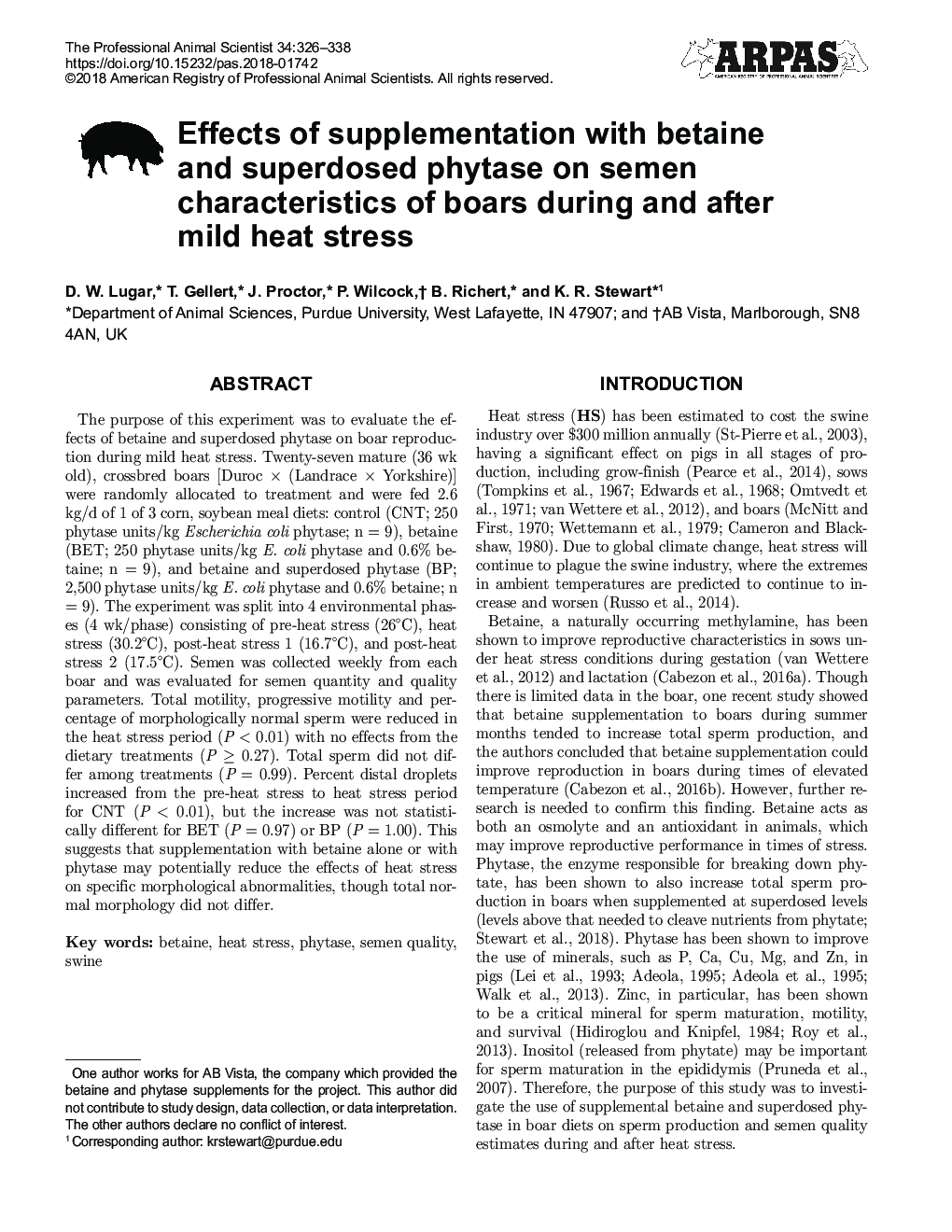| Article ID | Journal | Published Year | Pages | File Type |
|---|---|---|---|---|
| 8503655 | The Professional Animal Scientist | 2018 | 13 Pages |
Abstract
The purpose of this experiment was to evaluate the effects of betaine and superdosed phytase on boar reproduction during mild heat stress. Twenty-seven mature (36 wk old), crossbred boars [Duroc à (Landrace à Yorkshire)] were randomly allocated to treatment and were fed 2.6 kg/d of 1 of 3 corn, soybean meal diets: control (CNT; 250 phytase units/kg Escherichia coli phytase; n = 9), betaine (BET; 250 phytase units/kg E. coli phytase and 0.6% betaine; n = 9), and betaine and superdosed phytase (BP; 2,500 phytase units/kg E. coli phytase and 0.6% betaine; n = 9). The experiment was split into 4 environmental phases (4 wk/phase) consisting of pre-heat stress (26°C), heat stress (30.2°C), post-heat stress 1 (16.7°C), and post-heat stress 2 (17.5°C). Semen was collected weekly from each boar and was evaluated for semen quantity and quality parameters. Total motility, progressive motility and percentage of morphologically normal sperm were reduced in the heat stress period (P < 0.01) with no effects from the dietary treatments (P ⥠0.27). Total sperm did not differ among treatments (P = 0.99). Percent distal droplets increased from the pre-heat stress to heat stress period for CNT (P < 0.01), but the increase was not statistically different for BET (P = 0.97) or BP (P = 1.00). This suggests that supplementation with betaine alone or with phytase may potentially reduce the effects of heat stress on specific morphological abnormalities, though total normal morphology did not differ.
Related Topics
Life Sciences
Agricultural and Biological Sciences
Animal Science and Zoology
Authors
D.W. Lugar, T. Gellert, J. Proctor, P. Wilcock, B. Richert, K.R. Stewart,
